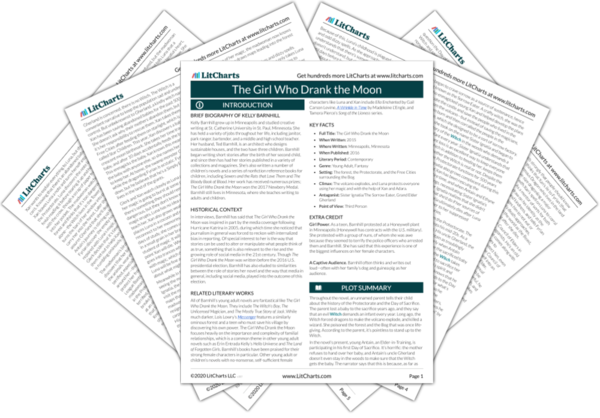AI ToolsNew
Tools to make learning and teaching easier
|
Previous
Chapter 5
|
The Girl Who Drank the Moon: Chapter 6 Summary & Analysis |
Next
Chapter 7
|


Upgrade to unlock the analysis and theme tracking for all of The Girl Who Drank the MoonThe Girl Who Drank the Moon!
Get LitCharts A+